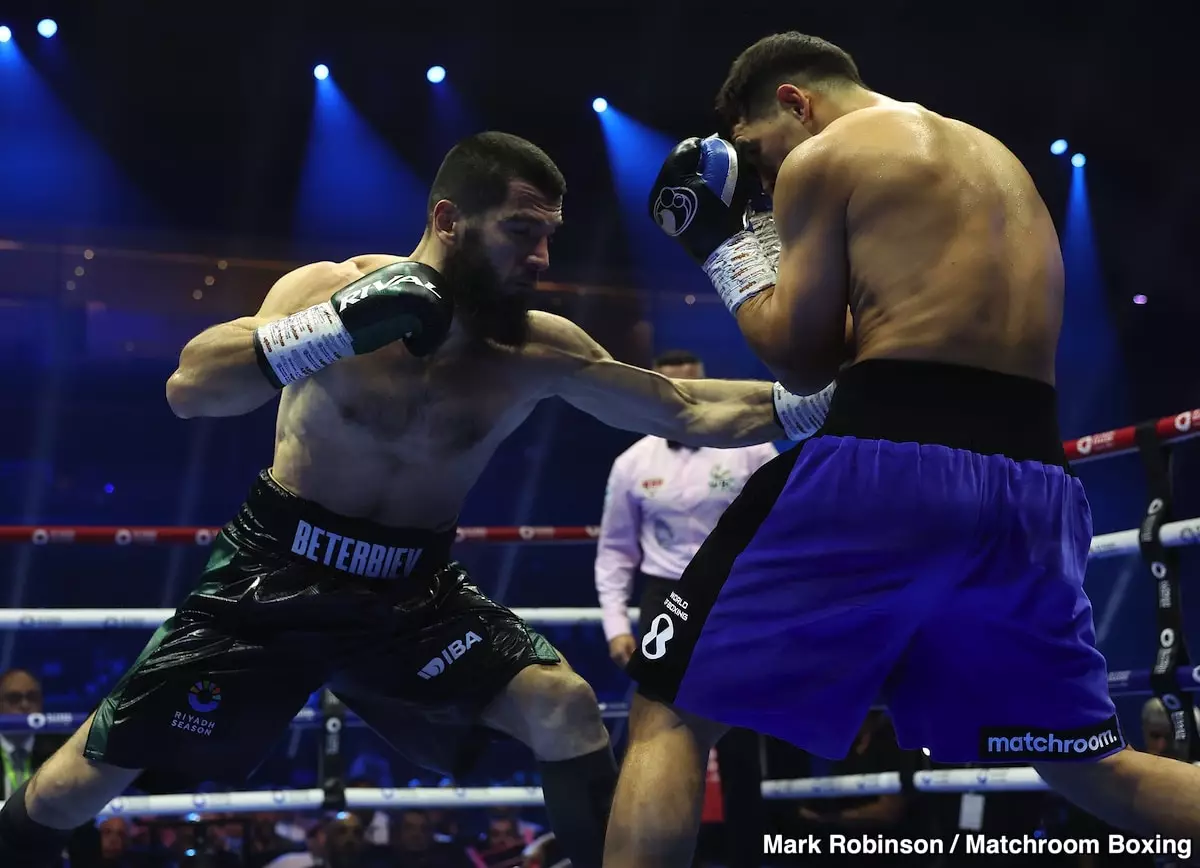Dmitry Bivol finds himself at an intriguing crossroads in his boxing career after a tightly contested match against Artur Beterbiev, the reigning undisputed light heavyweight champion. Their bout on October 12th proved pivotal for both fighters, with Beterbiev edging out Bivol via a majority decision, securing the victory with scores of 115-113, 116-112, and 114-113. Not only did this bout mark a significant moment for Beterbiev, moving his record to an impressive 21-0 with 20 knockouts, but it also forced Bivol to confront the painful reality of what went wrong in the ring.
Bivol’s strategy, particularly in the latter stages of the fight, has been criticized. Instead of capitalizing on his technical skills and standing his ground, he opted to be evasive—relying heavily on footwork and clinching rather than engaging in meaningful exchanges of punches. This approach made him appear as if he was fighting to survive rather than to win. Observers noted that Bivol’s reluctance to trade blows gave Beterbiev the momentum—highlighting the necessity for Bivol to adapt his style moving forward.
In preparation for their upcoming rematch on February 22nd in Riyadh, Bivol has publicly committed to reassessing his tactics in the ring. He understands that to turn the tide in his favor, a more aggressive approach is essential. “I just need to be better in all points,” Bivol conveyed, highlighting his need to not only move better but also to engage with more potent strikes. His call for action indicates an awareness that a passive approach may not yield a favorable outcome against an opponent with Beterbiev’s explosive power.
However, this strategy presents its own challenges—especially for a fighter like Bivol, who has built his foundation on finesse and technical prowess rather than raw aggression. While ambition is commendable, the 34-year-old will need to balance this newfound aggression with the risk of vulnerability. Increasing pressure on Beterbiev could potentially expose Bivol to counterattacks, something that could be detrimental if not managed correctly.
Beyond the tactical adjustments, there is a strong psychological component at play. Bivol has expressed a desire for vengeance, viewing this rematch as a test of his fortitude and ability to adapt. “I like in life when you have this test, you feel more alive,” he remarked, underscoring the intrinsic motivation behind his pursuit of redemption. This mindset may serve as a double-edged sword; while it can fuel his determination, it also places immense pressure on him to succeed.
As Dmitry Bivol gears up for his rematch with Artur Beterbiev, the focus will be on more than just physical adjustments. The need for a holistic approach—one that encompasses tactical evolution, psychological resilience, and strategic aggression—will be critical. Only time will tell if Bivol can rise to this formidable challenge and reclaim his status among the elite light heavyweight fighters.

